Eighteen children from all parts of the city arrive each morning at cheerful school in Chembur, a neighborhood in East Mumbai. Here at the Jewish Academy, a comfortable, newly renovated facility, they study a range of subjects in English and Hebrew. It’s the only Jewish school in India, and possibly the only Reggio-Emilio inspired preschool in a country that follows a traditional disciplinary educational model. Chabad’s Jewish Academy provides the city’s tiny population of Jewish children through age 14 a rich Jewish educational experience.
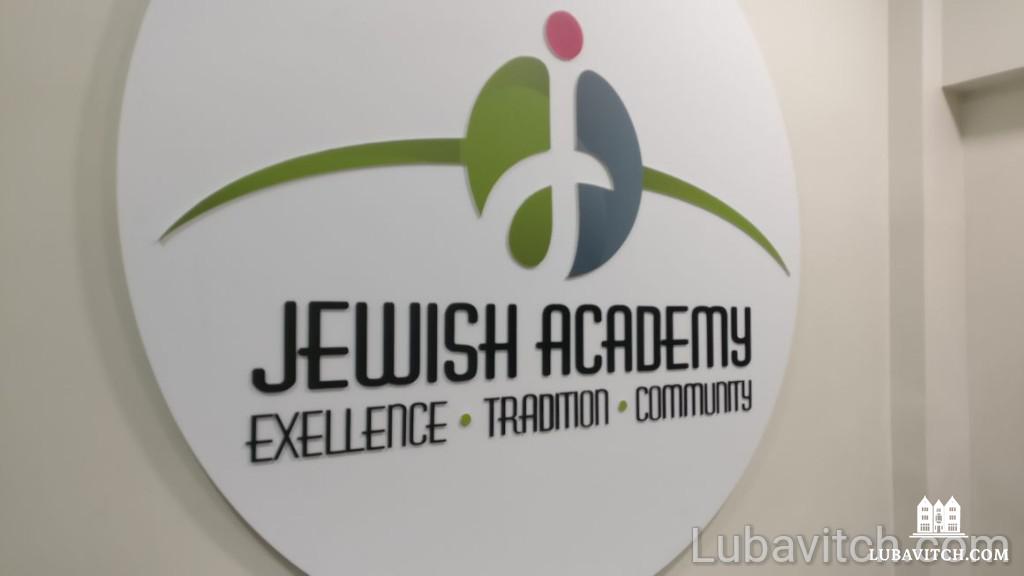
The Jewish Academy in Mumbai, led by director Chaya Kozlovsky, is founded on the principles of excellence, tradition and community. (Credit: Chabad Mumbai)
Among the student body are native Jews–most of Mumbai’s 3,000 Jews identify as the Bnei Israel, who’ve been living in India for hundreds of years–as well as Sephardic and Ashkenazic children living in Mumbai temporarily. Every enrollment, says school director Chaya Kozlovsky, Chabad’s representative to Mumbai, takes a lot of effort. More challenging yet, she says, is that a good portion of the students are from abroad. “It’s hard to build a school when it’s so small and a part of your student body is transient,” she says.
Still, Jewish life in Mumbai has come along since 2012, when Chaya and her husband Rabbi Yisrael, arrived. It was four years after their predecessors, Rabbi Gavriel and Rivky Holtzberg, were brutally murdered by terrorists. With two small children in tow, the Kozlovskys came ready to rebuild, and the Jewish Academy represents one of several positive developments in the city’s Jewish community. “We keep building on the foundations that were laid here by Gabi and Rivky Holtzberg,” she says.
Moshe Holtzberg may have been too young to remember, but images of the two-year old whisked by his nanny out of the house under siege made him an international symbol. It was three days in November of 2008 that television cameras were trained on the Chabad House, known as Nariman House, where Moshe’s parents, Chabad representatives to Mumbai, and four of their guests, were held hostage before terrorists brutally murdered them.
Today, 12 year-old Moshe Holtzberg lives with his grandparents in Israel. This week he accompanied Israeli Prime Minister Bibi Netanyahu to India. It is Moshe’s first time returning to the city of his youth, to the home of his early childhood and the memories held within its walls. On Thursday, together with Israeli Prime Minister Bibi Netanyahu, Moshe will dedicate a memorial to his parents and the other victims of 26/11, India’s 9/11.
Prime Minister Narendra Modi invited the preteen to visit Mumbai when he was in Israel this past July. In an emotional meeting in a Tel Aviv hotel, the two embraced warmly. “I love you and your people in India,” Holtzberg told the prime minister, sharing his dream of returning to his birthplace. He vowed to continue what his parents had begun. “I will be the director of our Chabad House,” the adolescent promised.
As they were rebuilding the Jewish community’s morale, the Kozlovskys were also reconstructing the Chabad Center in Nariman House. They moved in to the repaired building in 2014, and now, almost four years later, they are unveiling plans for a permanent remembrance to the Holtzbergs.
“We don’t call it a museum, it’s a living memorial,” stresses Rabbi Kozlovsky. “The idea is that people will add goodness and kindness; that viewing this will create waves of good that will spread far and wide.”
Nariman House is six stories tall. The bottom three floors are used as a restaurant, synagogue, and community hall. The top floors will be transformed into a welcoming memorial for locals and tourists. Until now, there has been no museum in India commemorating the day’s events. Roughly 15,000 people already visit Nariman House each year. As the attack’s principal memorial, Kozlovsky anticipates that number more than tripling when the site is complete.
Views from the sixth floor pan the roofs of this major metropolis, overlooking the other six sites targeted that day. Exhibits here will recreate the three-day siege by Pakistani terrorists that ended in the deaths of 166 people. The victims, including the Holtzbergs and the Jewish visitors they were hosting, will be remembered.
One floor down is the apartment the Holtzbergs called home for seven years. Visitors will be able to see where the family lived, including toddler Moshe’s bedroom. While they were living there, the Holtzbergs used their home as a base for teaching and living Judaism. Exhibits here will continue in that vein, highlighting the 10 special mitzvot the Lubavitcher Rebbe designated as central to a Jewish life. A complementary section will explain the seven Noahide Laws, prescripts for non-Jews.
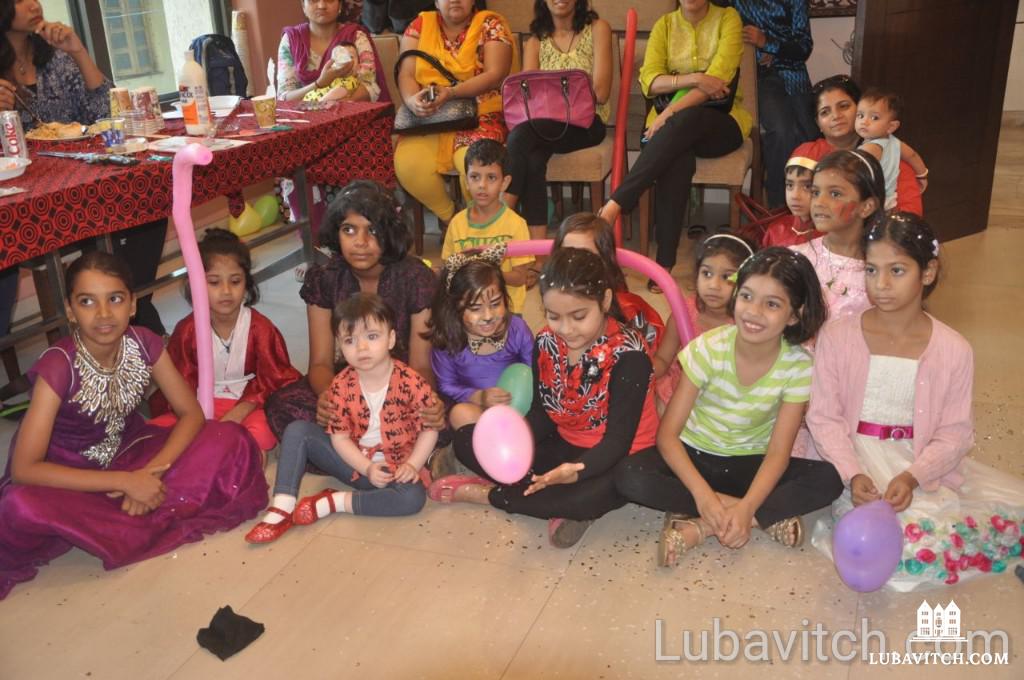
Education is a large focus of the Kozlovsky’s efforts on behalf of the city’s 3,000 Jews. The Jewish Academy educates the younger set, while adults are welcomed to classes and personalized learning sessions. This new memorial, the Kozlovsky’s believe, will attract even more Jews to their site and programming, transforming a place of darkness into light.
Like the children who gather each morning in school, Moshe Holtzberg is coming to his birthplace to recognize the light his parents kindled, the light the Kozlovskys keep going, the light no terrorist could dim.
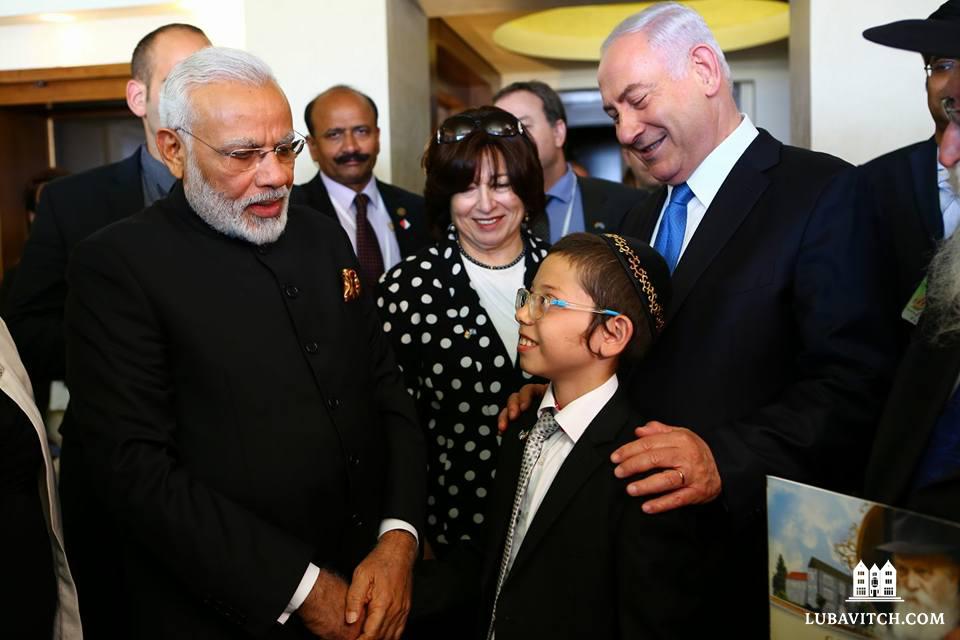 Moshe Holtzberg standing between India’s Prime Minister Narendra Modi and Israel’s Prime Minister Benjamin Netanyahu when he pledged to return to Mumbai in July, 2017.
Moshe Holtzberg standing between India’s Prime Minister Narendra Modi and Israel’s Prime Minister Benjamin Netanyahu when he pledged to return to Mumbai in July, 2017.
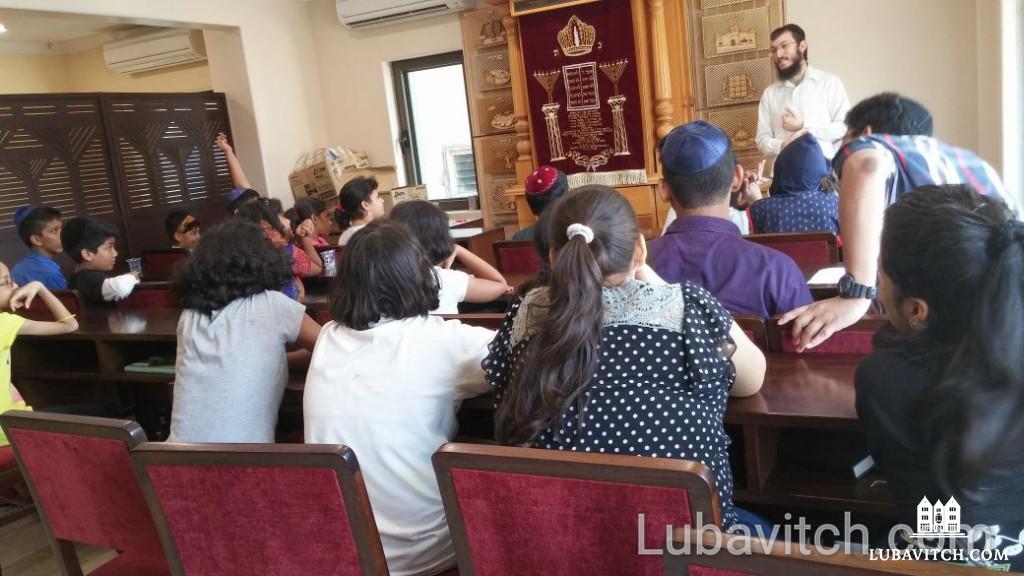 Rabbi Israel Kozlovsky addresses the students of Jewish Academy in Mumbai. The school has 18 local students enrolled and seeks to grow. (Credit: Chabad Mumbai)
Rabbi Israel Kozlovsky addresses the students of Jewish Academy in Mumbai. The school has 18 local students enrolled and seeks to grow. (Credit: Chabad Mumbai)
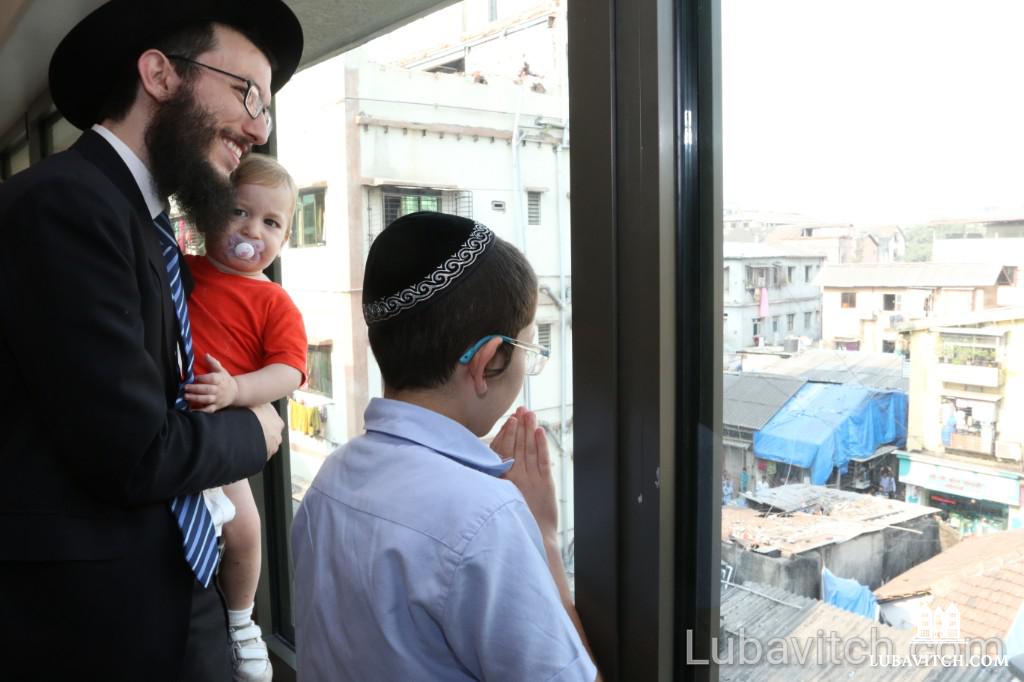
Be the first to write a comment.